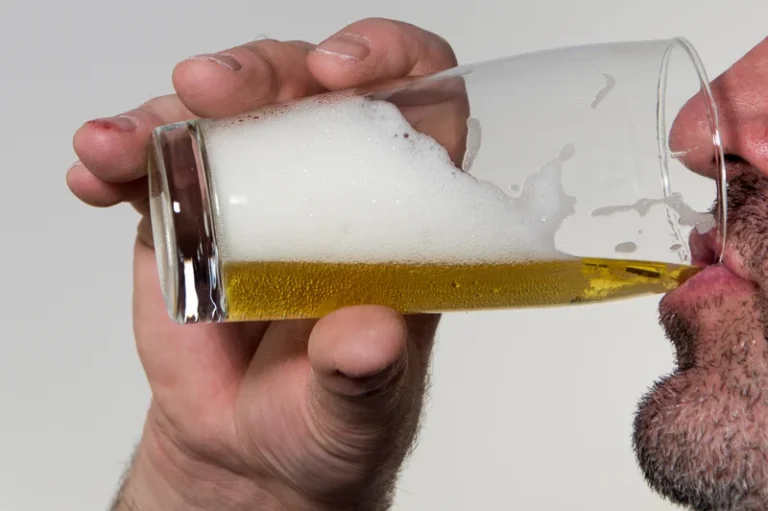
Medical treatments for alcoholism encompass a range of interventions aimed at addressing both the physical dependence and psychological aspects of the disease. Recent advancements and policy changes have expanded the accessibility and variety of treatments available for individuals struggling with alcohol use disorder (AUD). For instance, buprenorphine, a medication that mitigates withdrawal symptoms and reduces cravings, is now reaching an average of 37,000 new patients monthly. In the binge/intoxication stage, individuals consume large amounts of alcohol in a short period. This stage is characterized by the overwhelming desire to experience the pleasurable effects of alcohol, driven by its impact on the brain’s reward system. The reward system releases dopamine during alcohol consumption, reinforcing behaviors that promote drinking to recreate these pleasurable effects.
Tobacco, Alcohol, Prescription Medication, and Other Substance Use (TAPS)
- Just one or two alcoholic drinks can impair your balance, coordination, impulse control, memory, and decision-making.
- It suppresses the central nervous system (CNS), slowing normal brain function.
- As individuals continue to drink alcohol over time, progressive changes may occur in the structure and function of their brains.
- Alcohol addiction, also known as alcoholism, is a disease that affects people of all walks of life.
- It activates reward circuits in the brain, leading to a feeling of euphoria, which can be habit-forming.
Professional treatment offers expert guidance and crucial support for overcoming physical and mental challenges. Addiction is a complex and often misunderstood condition that profoundly influences the brain. Alcoholism, or simply alcohol addiction, is characterized by the compulsive use of the substance despite harmful consequences.
Promises Behavioral Health Addiction Treatment Centers
Although there is very what is alcoholism little scientific basis for it, it is an idea that has helped millions of people to turn their lives around. There are countless people around the world today who are living happier and more fulfilled lives because they decided that they were ‘an alcoholic’ and decided to do something about it by never drinking again. Not everyone who binges drinks has an AUD but is at a higher risk of developing one. As these changes occur, people tend to require increasingly more significant amounts of alcohol to become intoxicated.
Confronting alcohol use disorder and misconceptions as a woman

Group meetings are available in most communities at low or no cost, and at convenient times and locations—including an increasing presence online. This means they can be especially helpful to individuals at risk for relapse to drinking. Combined with medications and behavioral treatment provided by health care professionals, mutual-support groups can offer a valuable added layer of support.


12 These symptoms can be part of a potentially life-threatening condition called delirium tremens (DTs). At Crest View Recovery Center, we will help you reach the height of sobriety. We combine our education and expertise with our empathy to provide the highest quality addiction treatment in this region. Alcohol’s addictive nature can be attributed to its profound effects on the brain and body. When consumed, alcohol is quickly absorbed into the bloodstream from the stomach and small intestine, spreading its effects throughout the body. Understanding how addiction hijacks the brain is the first step to breaking free and regaining control of https://ecosoberhouse.com/ one’s life.
- Binge drinking is drinking enough alcohol to raise one’s BAC to 0.08% or above.
- Specifically, prefrontal regions involved in executive functions and their connections to other brain regions are not fully developed in adolescents, which may make it harder for them to regulate the motivation to drink.
- Behavioral treatments—also known as alcohol counseling, or talk therapy, and provided by licensed therapists—are aimed at changing drinking behavior.
- A person with an addiction has a compulsion to perform a behavior that they know is harmful.
- When choosing a support group or community resource, it’s important to consider the specific needs of the individual.
How does the brain change as AUD develops?

By Courtney Cosby “I drank too much last night, and the night before that. While I am consuming it, it is consuming me.” These are words that sadly come out of the mouths of too many people. Alcoholism is painful both for the individual who can’t stay away from the drink and for the people who love them, as they watch them move through life in a haze.
- This knowledge can help to create effective treatment plans for people struggling with alcohol use disorder (AUD).
- What makes it so indispensable to the person who seems to be so ruled by drink?
- See the NIAAA website for a more extensive list of the criteria used by physicians to diagnose AUD.
- Alcohol affects the production of hormones that regulate stress, mood, and energy levels.
- Recognizing the signs of alcohol abuse and seeking timely treatment are vital steps toward recovery.
- Recovery from alcohol addiction is tough, but you don’t need to go through it alone.
- If you or someone you know is dealing with an alcohol use disorder (AUD), treatment options are available.
Progression through these stages may not always follow a linear path, as individuals may move back and forth between stages. Resistance to change is recognized as an expected part of the process. Binge drinking is drinking enough alcohol to raise one’s BAC to 0.08% or above. Women typically reach this level after about four drinks and men after about five drinks in two hours.

Long-term alcohol addiction can lead to various serious physical and psychological effects. Physically, chronic alcohol use can damage nearly every organ in the body, with particularly detrimental effects on the liver, heart, and brain. Prolonged and heavy drinking often results in conditions such as liver disease, cardiovascular issues, and neurological damage. As well as ‘psychological addiction’, alcohol can also produce physical dependency. Heavy drinking over a long period of time can leave the body needing alcohol every day, and if the drinker attempts to stop suddenly they may experience sweating, shaking and nausea, and may even go into shock and die.
More specifically, studies have shown that ethanol is a gamma-aminobutyric acid (GABA) antagonist. GABA is the main why is alcohol addictive inhibitory neurotransmitter in the central nervous system (by way of creating a dramatic rise of chlorine ion release into neurons). GABA-A are receptors that decrease the excitability within neurons, which ethanol actually binds to. GABA-A interferes with the main excitatory neurotransmitter, known as glutamate, which is responsible for carrying signals between nerve cells in the body.
